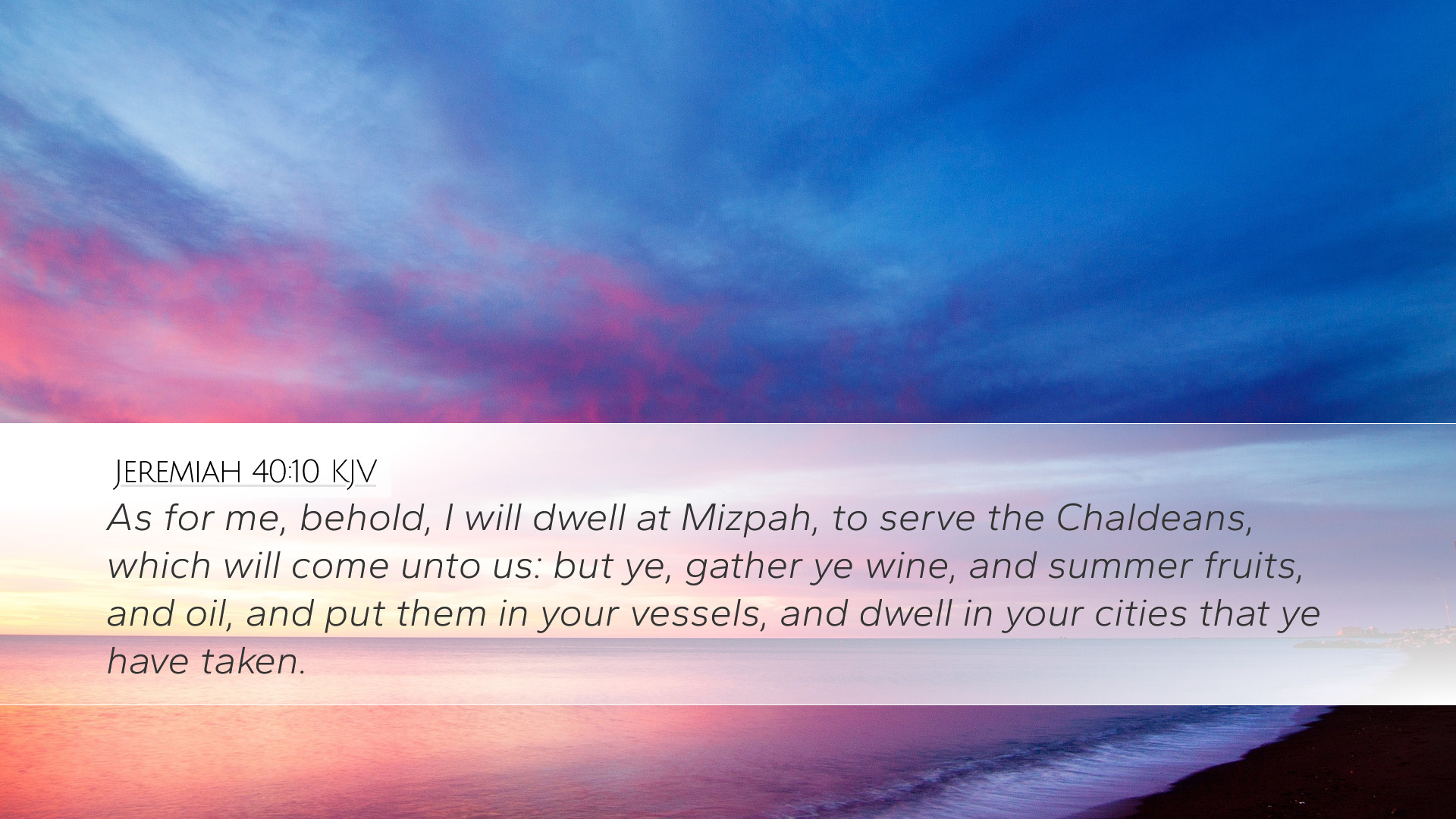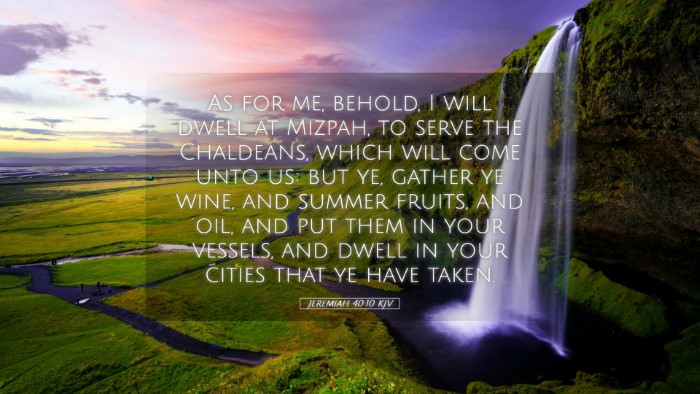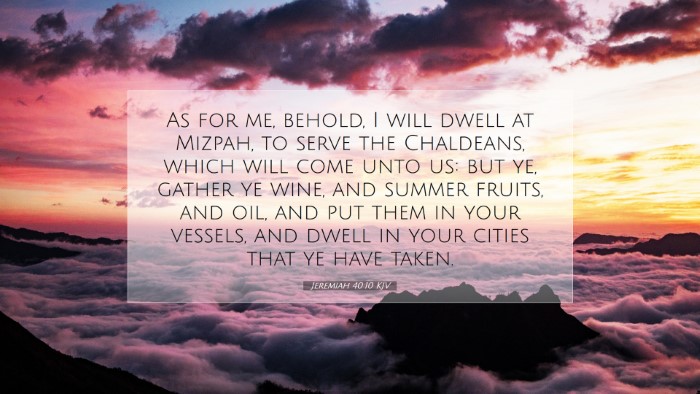Commentary on Jeremiah 40:10
In Jeremiah 40:10, we find a pivotal moment in the narrative of post-exilic Judah. The verse reads:
"As for me, behold, I will dwell at Mizpah to serve the Chaldeans, which will come unto us: but ye, gather ye wine, and summer fruits, and oil, and put them in your vessels, and dwell in your cities that ye have taken."
Contextual Background
This passage occurs after the Babylonian conquest of Jerusalem. The city has been devastated, and the people are scattered. Jeremiah is appointed by the Babylonian governor, Gedaliah, to remain in Mizpah, a site of strategic importance.
Matthew Henry's Insight
Henry emphasizes the significance of Jeremiah's role during this tumultuous time. He suggests that Jeremiah's presence serves as a stabilizing force amidst chaos. The prophet's call for the people to gather resources reflects a sense of hope and restoration, even in the face of calamity.
- Role of a Leader: Henry highlights Jeremiah's position not just as a prophet but as a leader who guides the people towards practical survival.
- Hopeful Gathering: The call to gather wine, summer fruits, and oil symbolizes the potential for renewal and prosperity, encouraging the people to look beyond their immediate despair.
Albert Barnes' Commentary
Barnes adds depth to the understanding of this passage by exploring the implications of dwelling at Mizpah. He notes that Mizpah was a place of gathering, representing both political and spiritual renewal.
- Strategic Location: Mizpah was chosen for its proximity to Jerusalem and its defensive capabilities, highlighting the need for safety during vulnerable times.
- Servitude to the Chaldeans: Barnes discusses Jeremiah's submission to Babylonian authority as a necessity for the survival of the remnant, illustrating the complex relationship between faithfulness to God and pragmatism in governance.
Adam Clarke's Observations
Clarke’s commentary focuses on the practical dimensions of Jeremiah's exhortation to the people. He points out that the gathering of resources indicates preparation for both sustenance and potential revival.
- Practical Preparations: Clarke calls attention to the idea that faith must be coupled with action; the people are encouraged to prepare for the unknown future rather than succumb to hopelessness.
- Divine Providence: He asserts that despite the ruins, God's providence remains, and the call to gather symbolizes trust in divine restoration.
Theological Considerations
This verse invites us to reflect on themes of survival, hope, and divine presence in dire circumstances. Each commentator sheds light on the spiritual and practical implications of Jeremiah's message:
- Survival Amidst Exile: The gathered resources can be seen as a metaphor for spiritual sustenance that believers must cultivate during times of trial.
- Hope in the Midst of Ruins: Just as the Israelites were advised to prepare for the future, Christians are called to actively engage in their communities and foster hope for renewal.
- Leadership and Guidance: Jeremiah’s role illustrates the importance of spiritual leaders in guiding congregations through tumultuous seasons.
Conclusion
Jeremiah 40:10 serves as a poignant reminder of God's faithfulness amidst adversity. Through the lens of these esteemed public domain commentaries, we are encouraged to embrace a posture of preparation, hope, and active trust in God's providence. As we reflect on this verse, let us consider how we can apply these timeless lessons to our own lives and ministries.


